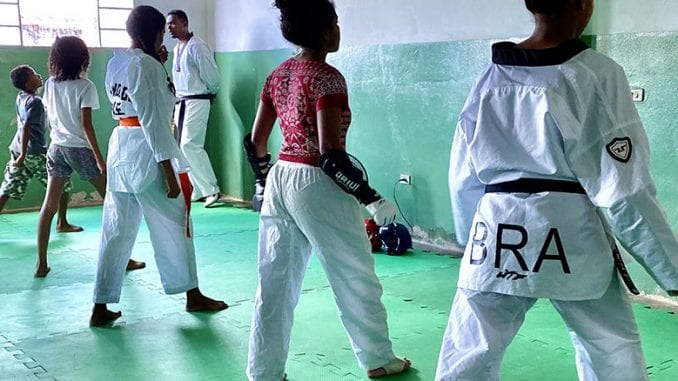
Força Café was created to help smallholder coffee producers, and its links to Casa da Criança illustrate how real transformation takes a village.
BY MICHELLE MAISTO
SPECIAL TO BARISTA MAGAZINE ONLINE
All photos courtesy of Michelle Maisto
Fabrizio Martins was in the large, spare kitchen of Casa da Criança, quickly rolling balls of cheesy dough onto a cookie sheet and chatting with a boy of 7 or 8, when the judging team of the Sixth Annual Força Café Championship arrived for a visit in mid-October. Fabrizio, the center’s director of operations, like nearly all the staff, is an unpaid volunteer.
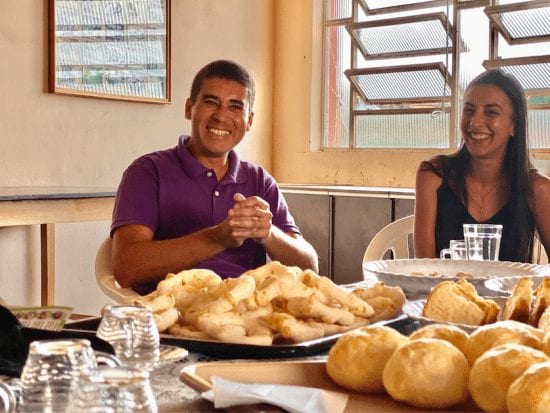
“The boy who was with me in the kitchen?” Fabrizio said later, serving coffee and the warm pao de queijo cheese rolls in an equally spare adjacent room. “He was being used by criminals to transport drugs. Now he participates here. We take kids from the streets and give them activities to do and a place to be.”
Casa da Criança, or “House of the Children,” was established in the 1990s in Santo Antônio do Amparo, in the home of Abigail Leite Valadao, a local woman who later became the town’s mayor. It provided children in the town with meals and a safe place to be while their parents worked; however, Abigail struggled with funding.
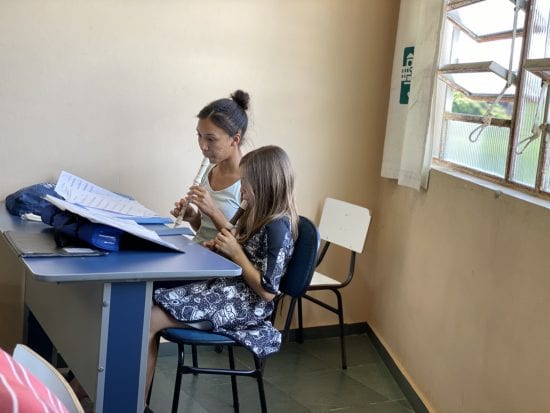
Casa da Criança had been closed for 10 years, when in 2014, Fazenda da Lagoa—a coffee farm owned by Neumann Kaffee Gruppe (NKG), a major landowner and employer in the area—hosted “O Mundo do Café,” an art contest that invited children in Santo Antônio do Amparo to paint scenes of coffee life. The contest was a particular success in that it gave the team at Fazenda da Lagoa, as well as the team at Hanns R. Neumann Stitftung (HRNS) do Brasil—a coffee nonprofit active in the Minas Gerais region—a view of the community’s intense need for youth-focused resources, which ultimately led to the re-opening of Casa da Criança.
The new center now has a much larger physical space and a program roster that includes sports and cultural classes for young people, as well as professional-skills classes—such as catering, baking, computers, care-taking, and tractor repair—for adults.
Fabrizio shared the story of two young women who previously believed their only options were prostitution or drug trafficking. “One of these girls took the Caretaker class, and now she earns two salaries and is very happy,” he said. “The importance of the house to the community can’t be overstated. Every dollar really changes lives.”
Part of HRNS do Brasil’s work with Casa da Criança has been tying it to the Força Café Championship—a contest developed between HRNS do Brasil, Fazenda da Lagoa, and NKG export company Stockler. Developed to help smallholder producers in Minas Gerais improve their coffees’ profitability, the championship invites smallholders to submit samples and then, after an intense elimination process involving the judging team, makes the top 10 winning lots in two categories available for sale through an online auction. (The auction began yesterday). Winners of the coffees can elect to include a 10-cent per-pound premium that goes entirely to Casa da Criança.
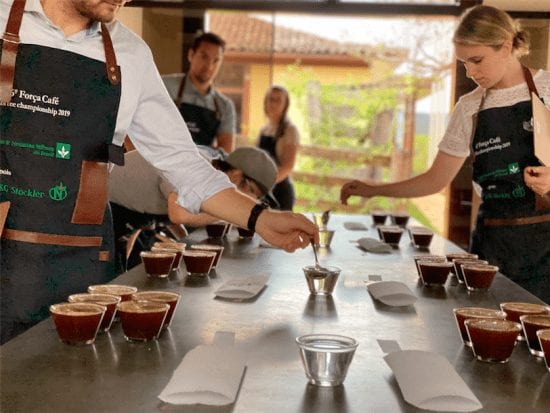
Previous auctions’ contributions have gone toward mats for the Taekwondo studio at Casa da Criança, and enabled students to travel to a national competition—at which they won silver and bronze medals.
“The more projects that can be developed, the more adolescents and children we can support, giving them the opportunity to grow socially, personally, and financially,” said Edmárcia Lelis Barbosa, a psychologist who runs Casa da Criança’s programs and offers support to its families, through a translator.
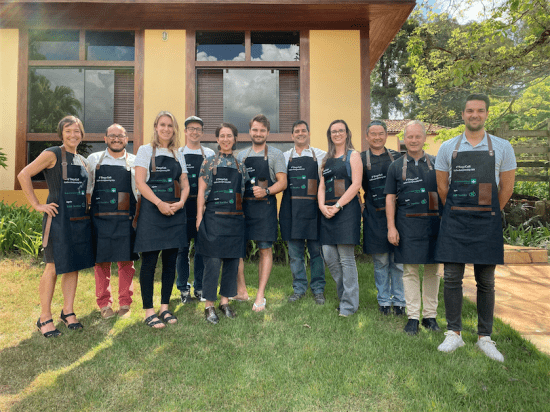
Fabrizio Martins, after walking his visitors through the music room, where groups of students were studying the recorder, noted that one student also studies the violin and recently played with Brazil’s national orchestra. “This is not just a place for them to spend their time,” he insisted. “These kids are really studying for greatness. They understand—this is their opportunity.”
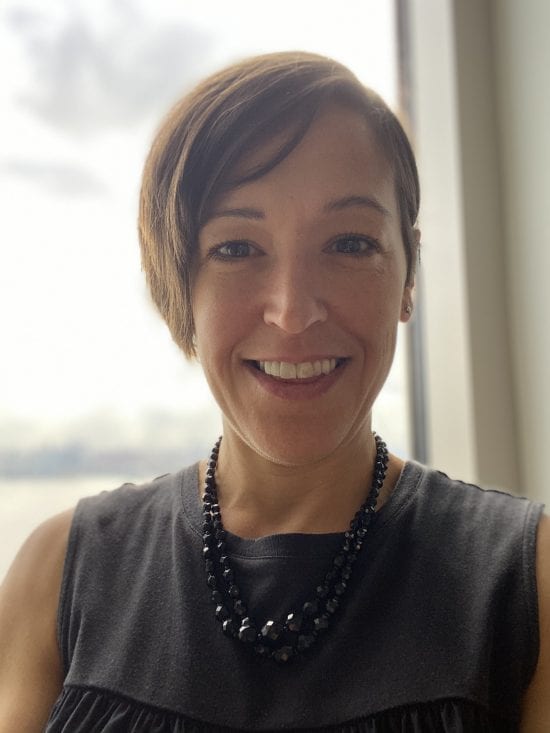
ABOUT THE AUTHOR
Michelle Maisto is a writer in Brooklyn, N.Y., and head of marketing at InterAmerican Coffee. She was honored to be part of the international judging team for the Sixth Annual Força Café Championship.

